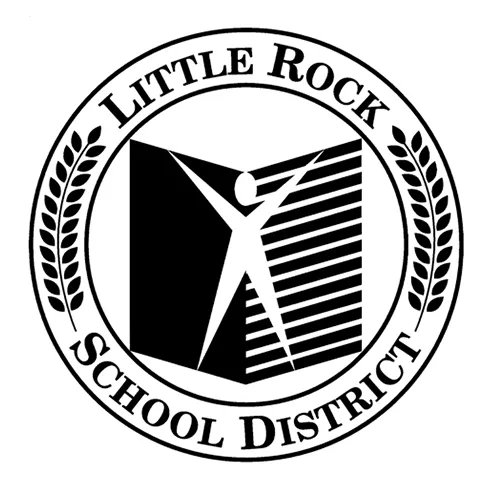Little Rock Schools: From State Takeover to Student Achievement


Little Rock Schools: From State Takeover to Student Achievement
Ellevation is proud to play a role in serving school districts as they help their English Language Learners achieve their highest aspirations. We are also delighted to showcase the gains schools are making with the help of our tools, including our Ellevation Strategies. As part of our Success Stories series, enjoy this piece about Little Rock School District in Arkansas and its journey from state takeover to student achievement.
Just as a carpenter needs a hammer and saw to craft cabinets, educators need certain tools to teach children. The teachers who get the strongest academic outcomes use effective instructional practices, or tools, such as explicit teaching, monitoring of progress, and multiple opportunities to practice (Graves, Gersten, & Haager, 2004).
Having these practices at-the-ready can mean the difference between a student achieving a year’s worth of growth (or more) and a student failing to show progress for ten months—especially when that student is an English Language Learner (ELL).
Patricia Martinez, a kindergarten teacher in Little Rock, Arkansas, credits using Ellevation Strategies for the academic and language growth she’s seeing in her ELL students after a year of using its activities in her classroom. These research-based, scaffolded activities offered in Ellevation were developed by ELL specialists across the country and help teach language and subject matter simultaneously. “I have had students this year who have come along so much faster than ELLs that I’ve had in previous years,” she says. “They are growing, and I honestly believe it’s because we’re using Ellevation Strategies that are getting them talking, not just to me but to other kids.”
The research supports this idea. According to Stanford professor and second language teaching expert Jeff Zwiers, “The more students communicate to accomplish engaging and realistic tasks, the better their learning of content sticks to their minds.” (Zwiers, 2015).
And it is growth like this that Little Rock School District (LRSD) is working hard to achieve. In 2014, the state of Arkansas classified six of the district’s 48 schools as under “academic distress,” a designation given when fewer than half of the students score at proficient levels on standardized tests. After seeing 22 superintendents come and go over the course of 32 years, the Board of Education decided it was time to try something new. In January 2015, it voted to take control of LRSD, the state’s largest district. LRSD knew one of its biggest challenges was meeting the needs of its English Language Learners. Of the district’s 25,000 students, nearly 3,000 are ELLs.
“Our ELL population continues to grow,” says ESL Director Dr. Karen Henery, who with her staff of two had a hard time keeping up with both the required recordkeeping and the important work necessary to improve instruction of ELLs. “We can’t monitor and manage every interaction with a student.”
To tackle the record-keeping challenges and streamline its ELL program management, LRSD purchased Ellevation in August 2015. Now Dr. Henery lets Ellevation track student progress and says she no longer questions the integrity of the data that schools submit. But the district received much more than efficiencies when it enlisted Ellevation’s help. LRSD needed to make quick and dramatic gains in student achievement and soon recognized that Ellevation could play a central role in overhauling the whole ELL program, including boosting collaboration among administrators, ELL specialists and classroom teachers and helping to improve instruction for ELLs.
Through the use of Ellevation, the entire culture in LRSD has shifted from being focused on compliance to being focused on improving the quality of instruction. “Once Ellevation was effortlessly handling the tedium of compiling the data, the teachers started saying, ‘Hey, we now have the time to really focus on instruction and use the instructional strategies and activities in Ellevation to differentiate instruction for our ELLs,” says Lupe Pena de Martinez, the ESL/SIOP secondary instructional specialist in LRSD.
Jonathan Crossley, principal at one of six schools designated as under “academic distress” in 2015, says teachers in his building use Ellevation to differentiate. “We trust Ellevation and see it not as a program,” he says, “but as an extension of our instructional practices.”
At Crossley’s Baseline Academy, 59 percent of the students are English Language Learners. After implementing Ellevation Strategies, preliminary results are encouraging: 33 percent of students grew one language level on the ELPA21 this year, reversing the trend of declining ELP test scores at the school. Despite having the largest ELL population in the district, Crossley expects Baseline to be the highest achieving school in Southwest Little Rock next year. “The key to school improvement is getting everyone on the same page,” he says. “Ellevation helps schools get on the same page around English Language Learner achievement and has played an important role in the success at Baseline Elementary.”
For Martinez, the kindergarten teacher, Ellevation is making a big impact on her students at Chicot Elementary School, too. “A lot of times we get stuff we can’t really use,” she says. Now, with Ellevation, Martinez can see each student’s strengths and needs and say, “‘OK, this kid has little background knowledge or this kid has trouble with conversations.’ Ellevation makes it so easy by using the data on each student to recommend the strategies and activities teachers should use in their instruction.”
Similar to Baseline, the latest data mirrors the instructional changes at Chicot, where 88.5 percent of students achieved “progressing” or “proficient” scores on the ELPA21 English language assessment this year.
Martinez puts herself in her students’ shoes and considers the confusion they must feel when they don’t understand the language yet are expected to simply soak up academic content. Without Ellevation Strategies, Martinez says, EL students will fall further behind.
“You can’t just pretend they understand. You have to have those language-building Strategies for them,” she says. “That’s your job, to meet them where they are and move them as far as you can.”